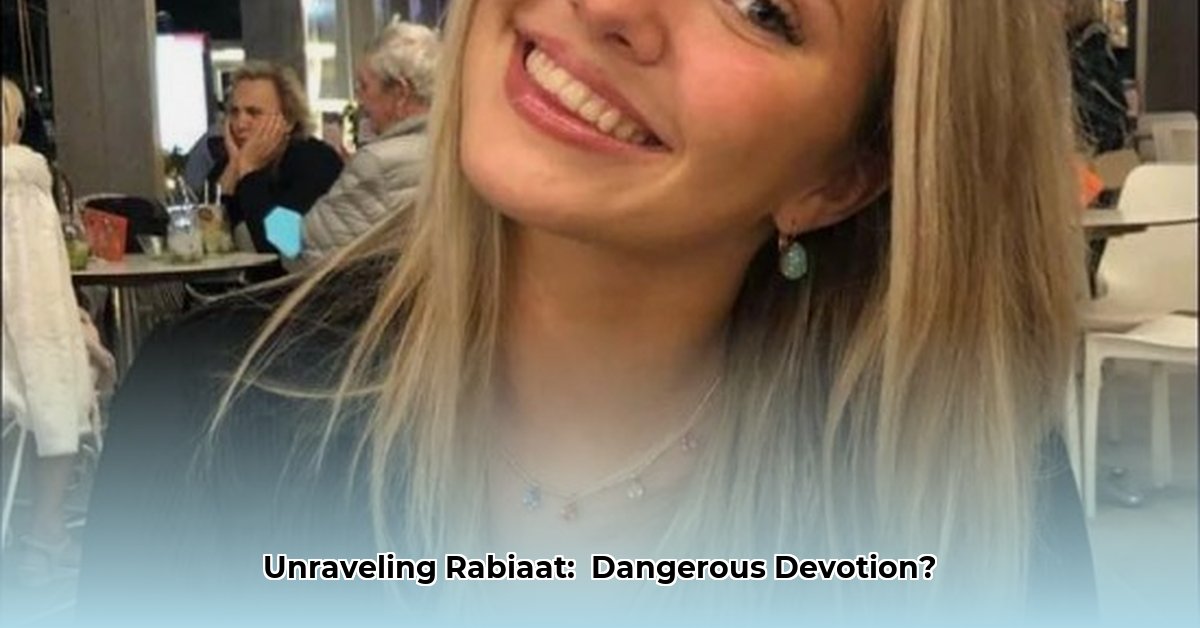
What does "rabiaat beteken" truly mean? This Afrikaans term, carrying the weight of intense, often frightening devotion to a belief – a devotion frequently leading to harmful actions – demands careful unpacking. It's a word that speaks to the darker aspects of human nature and requires nuanced understanding, lest we inadvertently amplify the very extremism it describes.
The Roots of the Word: Tracing "Rabiaat" Through Time
The core meaning of "rabiaat" is rooted in intense anger and fury. Its linguistic journey, originating from the Latin rabiare ("to rage"), through German and Dutch, reveals its powerful, consuming nature. It's not simply a strong emotion; it's a potent force, akin to a raging wildfire – uncontrolled, destructive, leaving devastation in its wake. This etymology highlights the inherent danger embedded within the term.
Historical Context: Extreme Fanaticism Through the Ages
The chilling reality of "rabiaat" isn't confined to abstract concepts. The Holocaust, the systematic extermination of millions fueled by Nazi antisemitism, serves as a stark, horrifying example. The sheer scale of brutality underscores the terrifying power this word encapsulates. It wasn't merely belief; it was a blinding rage that rationalized unspeakable acts. This historical context provides crucial perspective.
However, "rabiaat's" meaning isn't limited to the past. Echoes resonate in contemporary political movements, demonstrating how readily intense devotion can translate into harmful actions. Certain interpretations of ideologies, even today, reveal the enduring relevance of this potent term, connecting historical atrocities to present-day challenges. Understanding this historical continuity is crucial for effective countermeasures.
The Sensitivity of Understanding "Rabiaat Betekenis"
The challenge lies in responsible engagement with the term. While accurately reflecting extreme fanaticism, using "rabiaat" demands careful consideration. It's not about applying a simplistic label; it's about achieving deep understanding. We must examine the broader socio-political contexts nurturing such extreme beliefs. Superficial analysis risks perpetuating the very problem we are attempting to analyze. A balanced approach is essential, avoiding sensationalism and simplistic categorization.
Talking About "Rabiaat" Responsibly: The Path to Understanding
How, then, can we discuss "rabiaat" constructively? Oversimplification is detrimental. A multidisciplinary approach, involving political scientists, human rights experts, journalists, and educators, is critical. The objective is understanding, not labelling. This necessitates rigorous research into the drivers and spread of such extremism, as well as the development of effective counterstrategies.
Practical Steps: A Multi-faceted Approach to Counter-Extremism
Different sectors hold distinct responsibilities in addressing this complex issue:
- Academics: Conduct rigorous comparative research into various extremist groups, analysing the manifestation of "rabiaat" across diverse contexts.
- Human Rights Organisations: Develop robust resources combating hate speech, focusing on preventative education and intervention strategies.
- Media Professionals: Implement stringent guidelines guaranteeing responsible reporting on extremism, scrupulously avoiding sensationalism.
- Educators: Integrate media literacy into curricula, equipping students with the skills to discern bias and identify harmful language.
This collective effort – a collaboration between academics, human rights groups, the media, and educators – is paramount. Only through such combined effort can "rabiaat beteken" be approached with both the seriousness it deserves and a commitment to constructive engagement. Continued research and open dialogue are essential for a deeper understanding of this profoundly complex issue. The journey towards understanding is ongoing.
Countering Hate Speech: Strategies and Challenges
Key Takeaways:
- Nuanced understanding of "rabiaat" is crucial for effective counter-speech.
- Multi-faceted strategies, incorporating education and community engagement, are needed.
- Collaboration across sectors is essential for sustained impact.
Defining "Rabiaat" in the Context of Hate Speech
Precisely defining "rabiaat" within specific communities is crucial. This isn't simply translation; it involves grasping the cultural weight and recognizing its potential for weaponization – its usage to justify hatred and incite violence. This contextual understanding is the foundation of effective counter-speech.
Effective Counter-Speech Strategies
Effective counter-speech requires a multifaceted approach:
Contextual Understanding: Analyze the specific usage of "rabiaat." Is it inciting violence, or dehumanizing a group? The response must adapt to the specific context.
Direct, Yet Measured, Counter-Narrative: Directly challenge hate speech, but avoid mirroring hateful language. Employ calm, reasoned dialogue, anchoring responses within broader messages of tolerance.
Highlighting the Absurdity: Expose the inherent illogic of extremist ideologies through satire or irony.
Emphasizing Shared Values: Seek common ground, appealing to shared values like peace and justice, even when engaging with those holding extreme views.
Promoting Critical Thinking: Foster critical thinking by encouraging questioning and evidence-based argumentation.
These strategies need to be implemented within a comprehensive framework, integrating various elements for sustained effectiveness. Building such a framework requires:
- Educational Initiatives: Addressing the root causes of extremism through targeted educational programs.
- Community Engagement: Fortifying community networks to counter extremist narratives and promote tolerance.
- Policy and Legal Measures: Legislative frameworks deterring hate speech and preventing incitement to violence.
- Interfaith Dialogue: Promoting dialogue between faith-based communities to foster understanding and respect.
Countering hate speech is a complex, challenging, and ongoing process. Even small steps forward contribute to a more inclusive and safer society.